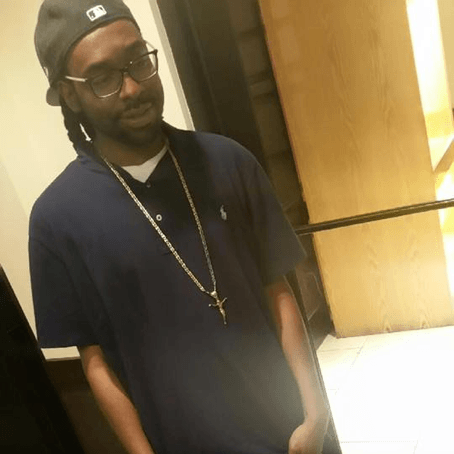Here's what to expect if Castile case goes to trial

Go Deeper.
Create an account or log in to save stories.
Like this?
Thanks for liking this story! We have added it to a list of your favorite stories.
It's rare that a police officer faces charges in the death of a civilian.
But a guilty verdict for a cop is even rarer.

St. Anthony Police officer Jeronimo Yanez makes his first court appearance Friday in the fatal shooting of Philando Castile during a traffic stop last summer in Falcon Heights. He's facing a second-degree manslaughter charge and two felony counts of dangerous discharge of a firearm.
If the case goes before a jury, prosecutors will have to convince the 12 jurors that Yanez acted unreasonably, said Washington County attorney Pete Orput — no matter what danger he may have perceived.
Turn Up Your Support
MPR News helps you turn down the noise and build shared understanding. Turn up your support for this public resource and keep trusted journalism accessible to all.
"We're not so interested in what that cop himself was thinking, because that's a subjective belief," Orput said. "This is what would a reasonable person ... what would you do in those similar circumstances?"
When Ramsey County attorney John Choi laid out the charges at a Wednesday press conference, he said Yanez's use of deadly force was not justified and that no reasonable officer would have done the same.

Choi pointed out that Yanez's partner, Officer Joseph Kauser, never laid a hand on his own service weapon.
"By his actions, and his own words, officer Kauser did not see Castile make any sudden movements and he was surprised by the gunshots," Choi said.
But the question of whether Yanez acted as a "reasonable person" may not come up at all in court, said Brad Colbert, who who teaches criminal procedure at Mitchell Hamline School of Law.
In considering a second-degree manslaughter charge, Colbert said, jurors will look to Minnesota law and decide whether Yanez was negligent.

"You just have to show that he acted recklessly and created an unreasonable risk and caused the death," Colbert said.
Castile told Yanez he was carrying a firearm. He had a permit to carry. Castile complied with Yanez's command not to reach for the gun, according to Choi.
But the criminal complaint said Yanez fired anyway — seven times — killing Castile as his girlfriend Diamond Reynolds and her daughter watched.
Yanez doesn't have to enter a plea at the first hearing in Ramsey County court. If he eventually pleads not guilty, he could choose to skip a jury trial altogether and let a judge decide his fate.
That's exactly what three of the six Baltimore police officers charged in the 2015 death of Freddie Gray did, Georgetown University criminal law scholar Paul Butler said.
"The first officer chose a jury trial. He got a hung jury. The second officer chose a judge trial. He got a 'not guilty.' And all the cops after that, they chose a judge trial," Butler said.
The judge found those officers not guilty, too. Last summer, the Baltimore State's Attorney dropped charges against the remaining officers.
That follows the national pattern of how unusual it is for police to be found guilty.
Of the 77 cops charged with murder or manslaughter nationwide in the last dozen years, 27 have been convicted, according to Phil Stinson, an associate professor of criminology at Bowling Green State University in Ohio.
The Castile case appears to be the first time in three decades that a police officer in Minnesota has been charged with killing a civilian in the line of duty — and police are watching the case closely.
John Lozoya with the Minnesota Latino Peace Officers Association this week urged the public to withhold judgment and let Yanez receive an impartial trial.
Dennis Flaherty with the Minnesota Police and Peace Officers Association said in a statement that police are "disappointed by the charging decision" and "Officer Yanez is presumed innocent until proven guilty."
But Maplewood Police Chief Paul Schnell, who's not involved in the case, said he respects Choi's decision.
After all, Schnell said, it's the same system police use every day to enforce the law. Plus, prosecutors had to know they could get a conviction.
"They believe that there's a reasonably high level or likelihood of success in this prosecution," Schnell said. "That's the standard that gets applied to the cases that we routinely present to them. And I trust that he and his team have made that decision based upon the evidence and based upon existing law."


